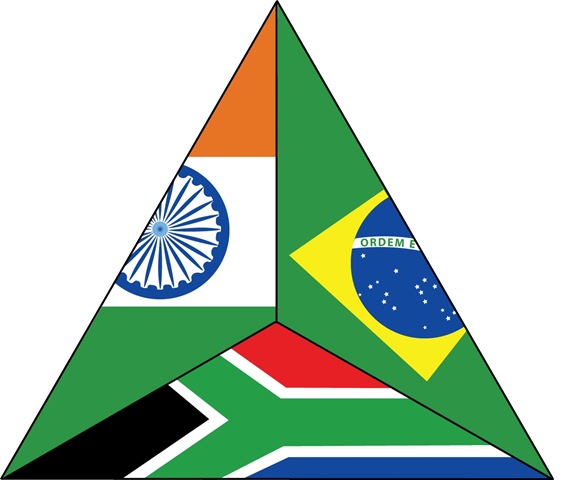Health cooperation between Brazil, India and South Africa is unimpressive, research shows
Notícia publicada em:
- 28 de Novembro de 2014
 The scarcity of financial and human resources, the frequent change in the political scenario and the lack of coordination among institutions involved in cooperation in the health of IBSA Forum – India, Brazil and South Africa Dialogue Forum – are some of the reasons cited for the “slow development and few concrete results of this cooperation”.
The scarcity of financial and human resources, the frequent change in the political scenario and the lack of coordination among institutions involved in cooperation in the health of IBSA Forum – India, Brazil and South Africa Dialogue Forum – are some of the reasons cited for the “slow development and few concrete results of this cooperation”.
That’s what the research “the South-South Cooperation agenda in health of IBSA Forum – India, Brazil and South Africa” shows, by Alejandra Carrillo Roa, a researcher associated with Nethis and consultant of the Pan American Health Organization (Paho/WHO). The research advisor is Professor Celia Almeida, Coordinator of the Master´s in Global Health and Health Diplomacy.
The rise of the BRICS – Brazil, Russia, India, China and South Africa block – and the expansion of their health cooperation agenda contributes to the low yield of the IBAS. For the researcher, there is an overlap of schedules and agendas that raise questions about the importance and uniqueness of the IBSA Forum and, particularly, on the maintenance of their agenda of cooperation.
Alejandra reviewed the trilateral and bilateral cooperation agenda in health of IBSA Forum, between 2003 and 2013, with focus on two working groups: health and science and technology. “These groups showed modest and unequal results,” she says.
AGENDA – the study reveals that the formulation of the agenda of cooperation in the field of health is tied to the guidelines of the foreign policy of the rulers and their Chancellors, and as a result “changes of Government favor the inching of formulation and implementation of schedules, which shall reflect the priorities, preferences and proposals of new Governments”. The predominant theme of the Forum is the HIV/AIDS epidemic.
Brazil maintained cooperation activities with the two countries before the formation of the IBSA. In cooperation with India, the main interests were linked to the exchange of technologies and importation of drugs. With South Africa, the focus was directed to the exchange of experiences on public policy in the fight against AIDS, in science, technology and innovation and reforms of health systems.
METHODOLOGY – Three qualitative techniques were used for data collection: bibliographical research, document analysis and interviews with selected key informants. After collecting the information, the data was contrasted with each other.
 Alejandra Carrillo Roa is an economist, master in Social Security by the Central University of Venezuela and a master in Public Health from the Sérgio Arouca National School of Public Health of Oswaldo Cruz Foundation (Ensp/Fiocruz). Access the full curriculum here.
Alejandra Carrillo Roa is an economist, master in Social Security by the Central University of Venezuela and a master in Public Health from the Sérgio Arouca National School of Public Health of Oswaldo Cruz Foundation (Ensp/Fiocruz). Access the full curriculum here.




